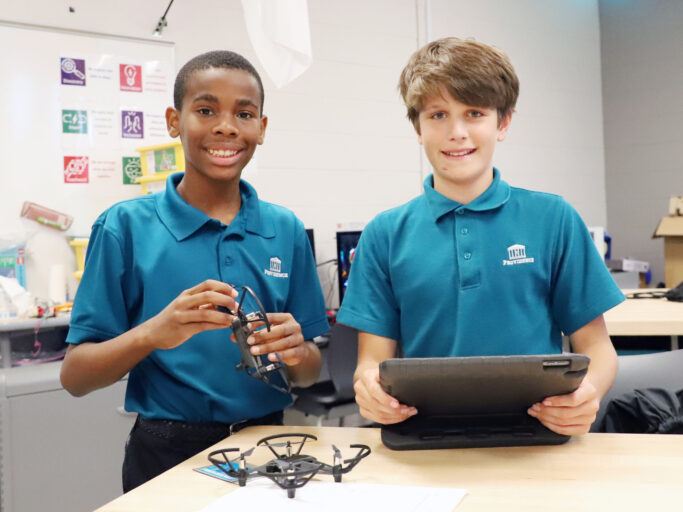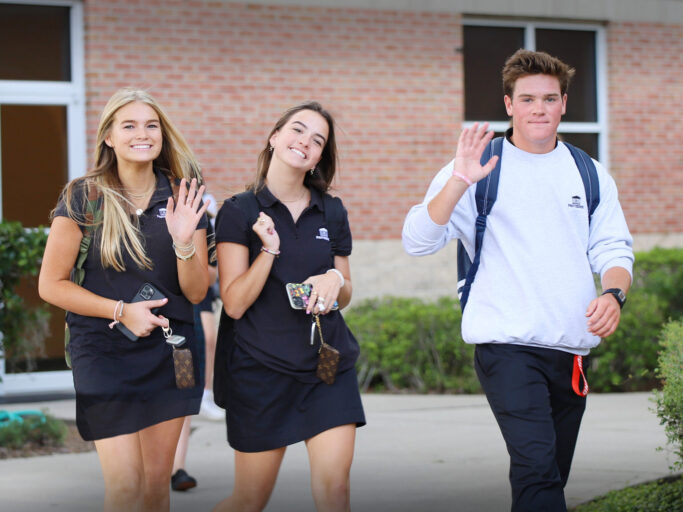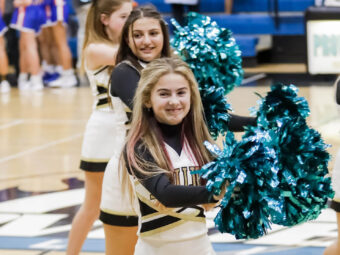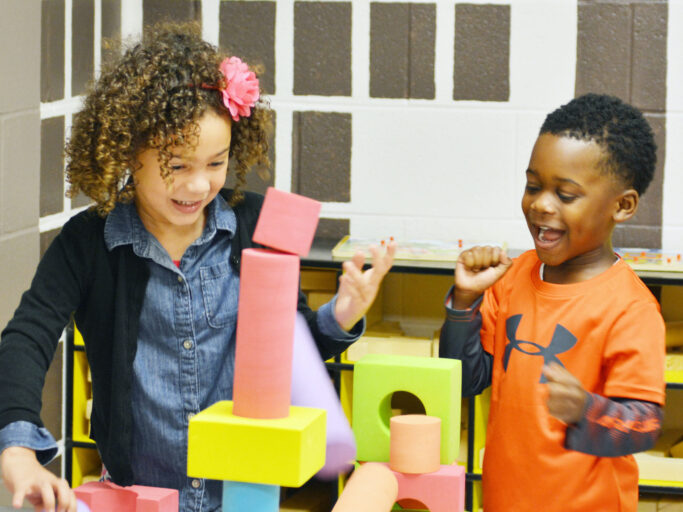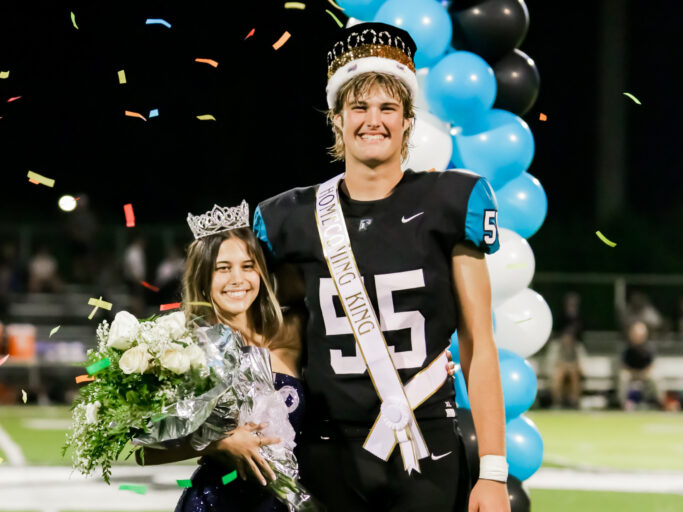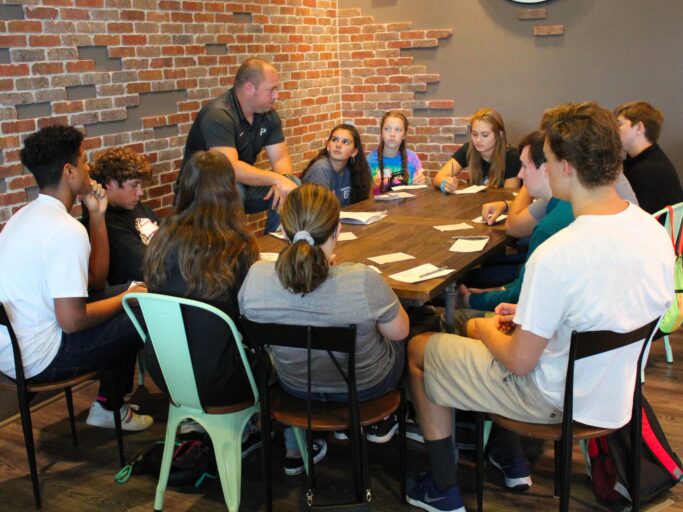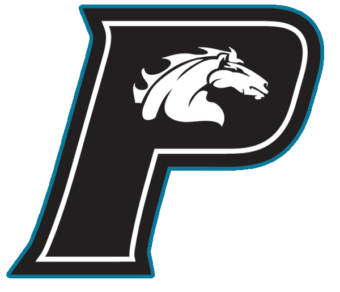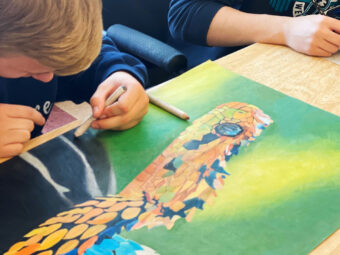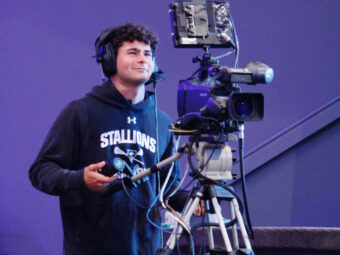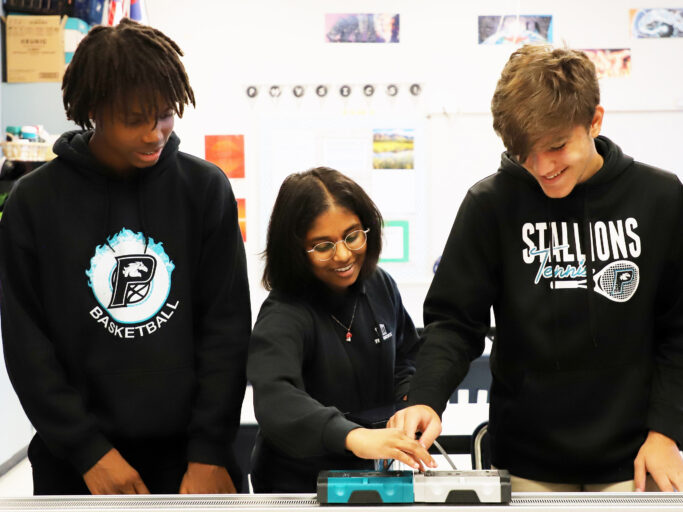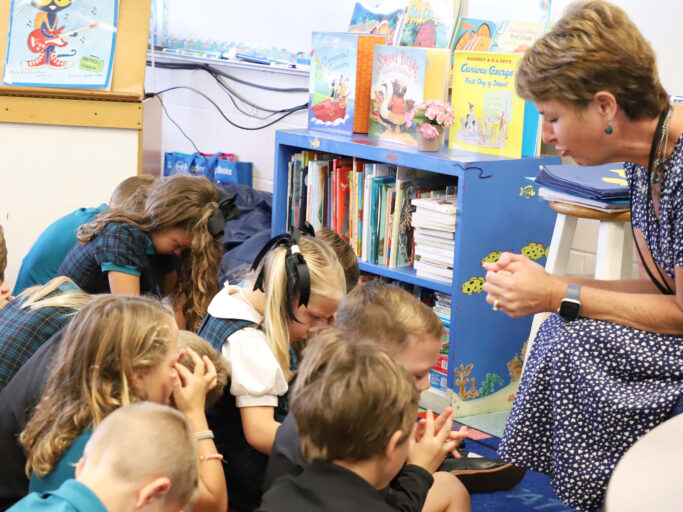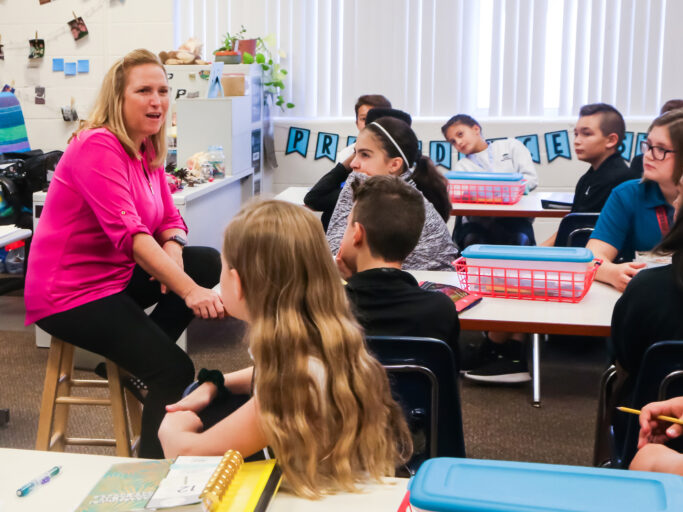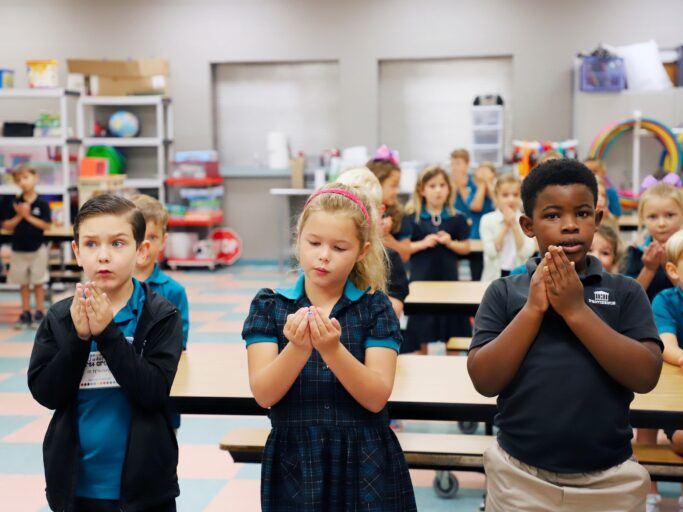Guiding You in God’s Purpose for Your Life
Each year, college representatives visit Providence and give students the opportunity to learn more about a college or university without ever leaving campus. Families and students have access to the school’s computer-based college counseling program, which provides statistics, college searches, links to scholarships, and other information. Our goal is for students to begin to understand God’s purpose for their lives as they explore the ever-changing world of college admission.
Guiding them through the process and helping them reach their full potential.
While outcomes are important, so is the process. The counseling department focuses on discovering good matches between students and colleges. We believe this is each student’s personal journey and our role is to support, guide, and educate students and their families.
Pathways to Success
By working through our college and career counseling pathway, students and parents are empowered through partnership with their counselor each step of the way. We use an individualized, data-driven process that helps students and parents find the best fit for their student’s college studies and selection of a college major. There are key points in the pathway for each grade level as outlined below. This is not an exhaustive list, but please review each grade level for these key milestones. We look forward to your partnership in this journey together.
- During elementary school students will work to establish a strong foundation in their academics and social skills through grade appropriate instruction.
- Classroom Guidance lessons will include empathy training, executive skills education, leadership, test-taking strategies and career exploration.
- The school counseling team will partner with each teacher and implement a comprehensive counseling program.
- School Counselors are available for responsive services to guide students through coping strategies so they can be successful in school.
- Students will continue to develop their work ethic, study skills, and social skills as they transition to middle school.
- Participation in sports, clubs, and/or service is critical for student’s well-rounded growth. This is a great time to explore a variety of activities through clubs, sports, and volunteering.
- Parents should participate in the academic planning night in the spring and partner with their school counselor and teachers to ensure they take classes that align with the highest level of rigor they can handle and be successful for the coming school year.
- MAP testing throughout the year will help teachers, parents, and students identify areas of strength and needs.
- As students prepare for high school, they should continue to develop their work ethic, study skills, and social competencies in partnership with their teachers and counselor.
- Genuine involvement in clubs, sports, or volunteering becomes more critical as they prepare for high school.
- Students taking high school level classes should be aware that these are part of their permanent high school record. The most important factor in college admissions is the rigor of classes students chose and the grades in those classes. (Here is a helpful link for college admission considerations: College Board Article)
- MAP testing throughout the year and the PSAT for 8th Grade students in October will continue to identify areas of strength and need.
- Parents should participate in the academic planning night in the spring and partner with their counselor and teachers to ensure they take classes that align with the highest level of rigor they can handle and be successful.
- Starting with the summer after 8th grade, students should start to list any activities they participate in including clubs, sports, or volunteering in a document like Microsoft Word to keep throughout high school. They should also include any awards or honors. This document will be a very valuable resource during the college application process.
- As students transition to high school, they should continue to work hard in every academic class and take advantage of the learning opportunities in Freshman Seminar to ensure a bright high school experience in their academics and extra-curricular pursuits. Colleges will evaluate grades from high school classes taken in middle school through junior year. Every grade in every class counts. (Here is a helpful link for college admission considerations: College Board Article)
- It’s important to note that genuine involvement in activities should not just be for college applications. They are critical for holistic growth and character development. Participating in a few areas of interest and spending the time needed to have true investment is better than participating in too many areas with insufficient time.
- MAP testing and the PSAT in October will provide critical feedback on areas of strength and need. Students should work on areas of growth in class and by using the official SAT practice provided by College Board through Khan Academy.
- Parents should participate in the academic planning night in the spring and partner with their counselor and teachers to ensure they take classes that align with the highest level of rigor they can handle and be successful. Students should consider taking upper-level courses including honors, AP, and Dual Enrollment core courses and academic electives for advancement.
- Students should participate in valuable summer opportunities that could include: volunteering, working, academic enrichment programs, specialty camps, and other school or community opportunities. By the end of freshman year, students should have at minimum of 25 service hours to be on track for the graduation requirement. (50 hours are required by the end of sophomore year to be eligible for an NHS application) This is the minimum requirement, but all students are encouraged to volunteer throughout high school and use their unique skills and talents to bless those in the community and continue to develop their character.
- Students will continue to develop their college-readiness skills in their classes and should continue to work on areas of need based on their MAP and PSAT Students will take the PSAT in October and MAP testing throughout the year. Students should continue to work on areas of growth in class and by using the official SAT practice provided by College Board through Khan Academy.
- Continued participation in extra-curricular activities (clubs, sports, or volunteering) is essential; students should look for opportunities to lead and serve in their organizations. Again, quality is what counts; devoting substantial time to a few areas is best.
- Students should continue to list any activities they participate in including sports, clubs, work, and volunteering in a document to keep throughout high school. They should also include any awards or honors.
- Parents should participate in the academic planning night in the spring and partner with their counselor and teachers to ensure they take classes that align with the highest level of rigor they can handle and be successful. Students should continue to consider taking upper-level courses including honors, AP, and Dual Enrollment core courses and academic electives for advancement.
- The formal college search process will include the use of data-driven tools including SCOIR, YouScience, and College Board’s Big Future Students should consider college visits during sophomore year or the summer between sophomore and junior year based on initial research.
- Students should take the SAT for the first time after completion of sophomore year. This could be in the summer after sophomore year or fall of junior year. Students should also consider taking the ACT at least once.
- Student-athletes who are considering sports in college should work with their coaches in preparation for recruitment; students should establish their account with the NCAA eligibility center and keep their information current.
- Students should participate in valuable summer opportunities that could be connected to the prior summer and include: volunteering, working, academic enrichment programs, specialty camps, and other school or community opportunities. By the end of sophomore year, students should have at minimum of 50 service hours to be on track for the graduation requirement. (75 hours are required by the fall of junior year to be eligible for an NHS application)
- Students will continue to refine their skills in preparation for college. Students will take the PSAT/NMSQT in October, MAP testing throughout the year, and should take the SAT the summer after sophomore year or fall of junior year. Taking the ACT at least once is also recommended. Students should continue to work on their skills through the official SAT practice provided by College Board through Khan Academy.
- It will be important to take the SAT again in the spring of junior year and possibly take the ACT for a second time.
- As upperclassmen, students should seek to serve in leadership in their extra-curricular activities (clubs, sports, or volunteering) and continue to document their involvement and awards in preparation for college applications.
- Student-athletes who are considering sports in college should continue to work with their coaches in preparation for recruitment; if they haven’t already, students should establish their account with the NCAA eligibility center.
- As part of the formal college and career progression, students will take the YouScience aptitude test and process their results in class and with their counselor. This is a critical step in identifying potential college majors and best fit colleges.
- Each student will work one-on-on with the counselor using a data-driven college and career planning process in partnership with their parent throughout the year.
- The formal college search process will continue through training in class as students use SCOIR and College Board’s Big Future program along with guidance from YouScience.
- The formal college project will begin in the spring of junior year in conjunction with the counseling and English departments. Students will work in the spring to start the project that will carry into the fall of senior year.
- Students should take advantage of college visits with representatives who visit throughout fall semester and plan on visiting their top colleges throughout the year into summer prior to senior year.
- Parents should participate in the academic planning night in the spring and partner with their counselor and teachers to ensure they take classes that align with the highest level of rigor they can handle and be successful. The formal college process will be outlined in preparation for summer and senior year.
- Students should participate in valuable summer opportunities that could be connected to the prior summer and include: volunteering, working, academic enrichment programs, specialty camps, and other school or community opportunities. By the end of junior year, students should have at minimum of 75 service hours to be on track for the graduation requirement. (100 hours are required by the fall of senior year for the graduation requirement)
- If students are still seeking higher scores for college admissions and/or Bright Futures, they can continue to take SAT and/or ACT exams summer after junior year or early senior year. Students should continue to work through the official, personalized SAT practice from College Board provided by Khan Academy.
- As seniors, students should seek to continue to serve in leadership in their extra-curricular activities and continue to document their involvement and awards for their college applications.
- Student-athletes who are considering sports in college should continue to work with their coaches and counselor in the recruitment process; students should make sure to keep their NCAA eligibility center account updated.
- Students will continue to work on the college project in their English class and work with their counselor through classroom guidance lessons and one-on-one meetings.
- College representative visits will continue to be available fall of senior year. Students should sign up for college visits and plan on visiting their top colleges during the school year.
- Students will apply to their targeted schools using the formal pathway process as outlined in class. Parents are encouraged to actively participate. The senior parent night in early fall semester will outline the critical steps students in the process.
- Students will complete the application for Florida Financial Aid (Bright Futures). Families should complete the FAFSA as well so students will be considered for aid at the schools they are applying to.
- The largest sources of funding for college is from the universities themselves, Bright Futures (for Florida colleges and universities), and from the federal government (FAFSA). Students should work on scholarship applications for their schools as needed and apply to smaller scholarships through scholarship searches in College Board’s Big Future and sites such as Fastweb and Cappex. Local and national scholarship opportunities will be posted in Canvas throughout the year.
- Students are encouraged to visit the schools they have been accepted to in the spring before committing to their school. Many schools require a decision by May 1st of senior year.
Counselor’s Corner
We as school counselors desire to encourage our students in their academic, social and emotional, and future goals pursuits (including college and vocation). To thrive, our students need to be filled and encouraged physically, mentally, and spiritually.
As part of our curriculum plan, we will continue with our classroom lessons and also send resources to our students and you as parents as we continue through the year. There are practical steps on how we can promote our own mental health and encourage others and receive support when we are struggling.
We look forward to partnering with you as we work together for our student’s success and overall health.
Sincerely,
Mrs. Robertson, Mr. Augenstein, Mrs. Clark, and Mrs. Washington
Tips for Success
Important Links

SCOIR is a secure online platform that we use to support post-secondary, college, and career planning. Juniors and Seniors research college opportunities and view statistical and historical data to make informed decisions for applying to colleges. Application documents are sent to colleges electronically through SCOIR.

YouScience is a comprehensive aptitude and interest assessment that we use to help our students discover best-fit careers and associated college majors.

The Common Application is an undergraduate college admission application that applicants may use to apply to over 500 member colleges and universities.
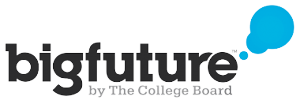
BigFuture by the College Board, found online at BigFuture.org, guides all students through the
college planning process, making it easier and less overwhelming. The step-by-step approach
demystifies college planning, particularly for those students who are the first generation in their
families to attend college.
Students using BigFuture answer questions and make choices about their own needs and
preferences. Easy-to-use search tools and informative videos guide them through the process.
The large collection of videos contains real-world advice from college students and expert
educators.

College entrance exams are often an important part of the student’s application for colleges during their senior year. We encourage students to take the SAT after completing Algebra 2. Typically, this is the summer or fall after sophomore year. Please see this flyer for more information about the SAT. Many students also chose to take the ACT. This booklet published by the ACT is a helpful guide that summarizes the college entrance exam process. The current and most updated exam dates and registration deadlines can be found here for the SAT and here for the ACT. Colleges and Universities take either exam equally and either exam can help qualify a student for Bright Futures.

Students in 10th and 11th grade can take the new PSAT/NMSQT and PSAT 10 to measure readiness for college, access scholarships, and practice for the SAT.

Together with the Florida College System, the State University System of Florida, which includes Florida’s 28 community colleges and state colleges, it is part of Florida’s system of public higher education. The system, headquartered in Tallahassee, is overseen by a chancellor and governed by the Florida Board of Governors. Please see the Matrix that provides detailed information about each college’s application data and process.

College-bound student-athletes preparing to enroll in a Division I or Division II school need to register with the NCAA Eligibility Center to ensure they have met amateurism standards and are academically prepared for college coursework.
Scholarships / Financial Aid
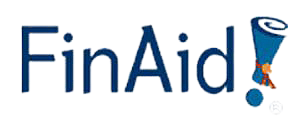
The Smart Student Guide to Financial Aid is a helpful resource for college financial aid information including scholarships, loans, savings plans, and military aid.
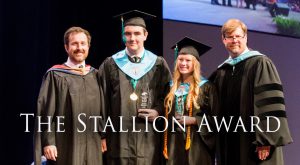
The Stallion Award was established to recognize one senior young man and one senior young lady who best exemplifies the mission of Providence School. Each recipient will be awarded a trophy and a $1,000.00 award at the Graduation Ceremony. The winners will be selected based upon their application and interview. The top candidates will receive an invitation for the interview.


